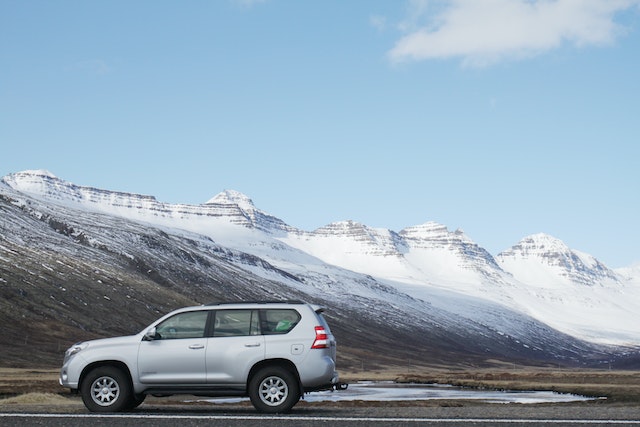
Fighter planes had been constantly improved to fly at increasing altitudes, but as they continued reaching new heights, there was a growing problem: air pressure. The less-dense air of the upper atmosphere meant that the planes’ engines were essentially suffocating. Thankfully, with the advent of supercharging, which essentially made air pumps engine-driven, the problem went away, allowing planes to fly normally, even at extreme altitudes.
Believe it or not, though, the issue of high-altitude “breathing” is still a problem, and it can even affect your car! Even with all the computer controls and modern tech inside our vehicles, the laws of physics aren’t going to bend. Less air means your car has a poorer fuel-to-air mixture. The delicate balance between fuel and air has some wiggle room, but anything outside of the optimal ratio causes problems.
With that being said, you might wonder why all of today’s manufacturers don’t just slap a supercharger onto their cars as aircraft engineers did in the 1940s. The fact of the matter is that cars are designed to operate in an ideal set of circumstances here on the ground and rarely find themselves driving close to the heights of the Himalayas.
Therefore, the extra cost of designing a turbo or supercharger that kicks in when air density drops would just add complexity and cost.
Altitude vs. Horsepower
When traveling at high altitudes, vehicle engine performance suffers, but how much so? The rule of thumb is as follows: Climbing 1,000 feet is equal to a 3% loss in horsepower.
For instance, let’s say your car has a healthy 300 hp. If you drive from sea level to the top of Colorado’s Mount Evans Scenic Byway, which (rounded out for simplicity) is over a staggering 14,000 feet above sea level, you could lose out on up to 42% or 126 hp when you reach the highest point. Again, when traveling at high altitudes, vehicle engine performance suffers.
Forced Induction Caveats
Of course, if your car does have a supercharger or turbocharger under the hood, you will probably notice far less power loss, if any at all. That doesn’t mean there aren’t other effects that can decrease overall performance, but instead, just that the forcing of air by the turbo or supercharger can overcome the atmospheric deficiencies. Regardless, in general, when traveling at high altitudes, vehicle engine performance suffers.
Altitude vs. Gas Mileage
Now, you may be wondering, “Does altitude affect gas mileage, too?” The answer is yes, and it’s a mostly negative effect to boot. Starting with the effects on the engine itself, given that there’s less air to pull in, the engine isn’t able to burn its fuel as efficiently as normal. Keep in mind also that since your engine is making less power, it’s going to have to work harder to maintain the same level of performance you may be used to.
It’s not just reduced horsepower that you have to worry about, though. “Does altitude affect gas mileage due to non-engine-related issues?” you ask, and the reply: You bet!
The higher you climb, the colder it will get, too. Your tire pressure will drop, causing your tires to essentially deflate. Not fully, to be fair — you’ll still be able to drive — but you’ll cause uneven tire wear, mushy handling, and feel more resistance in the form of friction. That extra drag can not only lower your fuel economy but can even lead to tire failure if the pressure gets too low.
Altitude vs. Fuel
Octane is what prevents knocking or premature detonation in fuel. That’s why more powerful sports cars use high-octane fuel: the engine can run at higher pressures, which makes more horsepower.
As your car approaches the upper atmosphere, however, it doesn’t need as much octane to avoid knocking. In fact, you can find gas in high-altitude locations with octane ratings as low as 85!
While that might not sound like a problem, if you have a tank at 85 as you start descending back toward sea level, your car’s standard octane requirements will reappear, and it won’t be happy. You’ll either have to use up the low-octane fuel at higher altitudes or go to a service center to have them flush the fuel system.
Altitude vs. Maintaining Performance
Let’s start with tire maintenance, as that’s the easiest fix. If your car has tire pressure monitoring, keep a close eye on your PSI readings. Carry an electric tire pump in the trunk to top them off when you need to, and remember that you may, in fact, have to let some pressure out upon your descent!
As for your engine, make sure you have the right octane rating for your car. When in doubt, you can always go higher. Doing so won’t cause any serious problems, whereas having an octane rating that’s too low will.
If you can’t use up your tank of 85 octane fuel before you need to leave and you don’t want to waste it, you can always keep a bottle or two of octane booster handy, which can increase octane ratings by 2.5%, bringing that 85 back up to a standard 87.
As is clear, when traveling at high altitudes, vehicle engine performance drops, but that doesn’t mean your car has to suffer as a result. Extreme environments put extra stress on your car, so always make sure it’s in tip-top shape when you’re about to go up or down a mountain by taking it in for a tune-up and inspection. You’ll give yourself peace of mind before a drive to a high-altitude destination.








